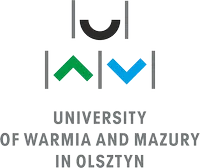Vieta presented his analytic art as "the new algebra" and took its name from the ancient mathematical method of "analysis", which he understood to have been first discovered by Plato and so named by Theon of Smyrna. Ancient analysis is the 'general' half of a method of discovering the unknown in geometry; the other half, "synthesis", being particular in character. The method was defined by Theon like this: analysis is the "taking of the thing sought as granted and proceeding by means of what follows to a truth that is uncontested"'. Synthesis, in turn, is "taking the thing that is granted and proceeding by means of what follows to the conculsion and comprehension of the thing sought" (Vietae 1992: 320). The transition from analysis to synthesis was called "conversion", depending on whether the discovery of the truth of a geometrical theorem or the solution ("construction") to a geometrical problem was being demonstrated, the analysis was called respectively "theoretical" or "problematical".
Burt C. Hopkins, "Nastalgia and Phenomenon: Hussel and Patočka on the End of the Ancient Cosmos," The Phenomenological Critique of Mathematisation and the Question of Responsibility: Formalisation and the Life-World (2015) ed., Ľubica Učník, Ivan Chvatík, Anita Williams, p. 71, Contributions to Phenomenology 76


